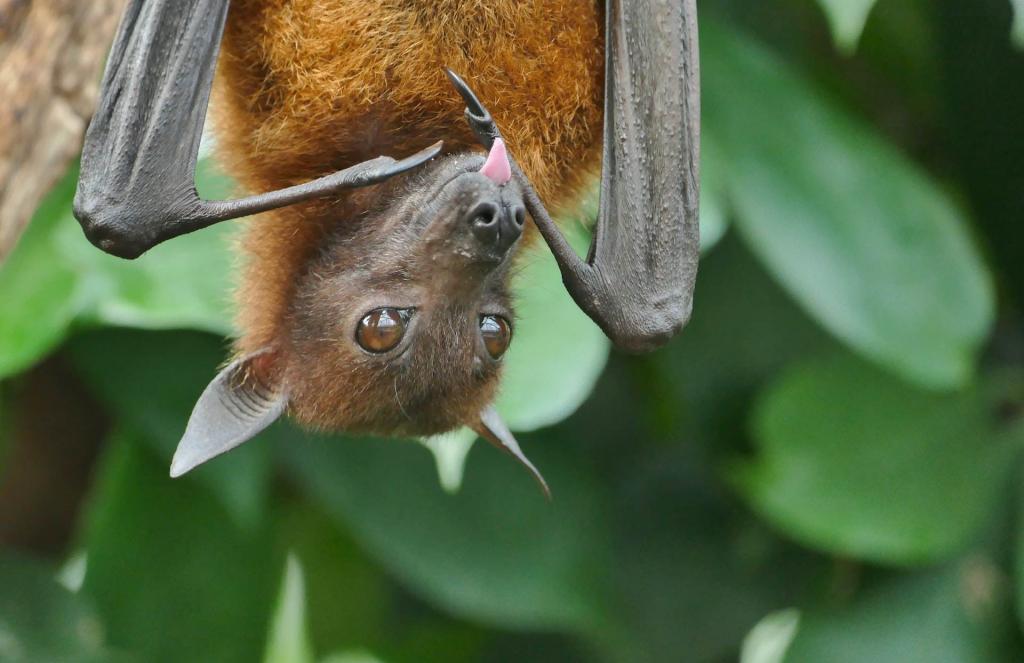Thessaloniki gets ready for its metro launch in November
The underground rapid transit lines have been under construction for almost two decades due to various project delays
 TheMayor.EU logo
TheMayor.EU logo 
Bats help control the insect population like natural insecticides , Source: Peter Neumann / Unsplash
The Belgian capital is home to around 20 species of bats, who mainly feed on insects and help keep local biodiversity
The Brussels bat festival is ready to kick off on 20 August. The event will last until 3 September and citizens of the Belgian capital will have the chance to familiarise themselves with the nocturnal mammals, as well as their importance to the local ecosystem.
The event is organised by Bruxelles-Environnement, with the help of the non-governmental environmental organisation Natagora and will feature documentaries, family entertainment and guided tours of the bat protection facilities in the city.
The festival will mark the 26th European Bat Night on 27 August and all events will be free.
Brussels is home to around 20 different species of bats, from ones that fit in a matchbox to the noctule, that has a wingspan of 45 centimetres. Bats are also extremely vital to the city’s ecosystem, as they feed on insects and some species are able to eat half their weight in insects every night.
However, since the 1950s their population has been in decline due to humans suppressing their living environment, light pollution and the massive use of insecticides, reducing food supply.
Bruxelles-Environnement and Natagora have been implementing different measures to help stabilise the species population. These include underground bat habitats, that are inaccessible to humans and maintaining old trees that have a lot of nooks and cavities, perfect places for resting bats.
Additionally, the organisations have also lobbied successfully for installing LEDs in the Sonian Forest in the south of the Belgian capital. This is because LEDs are less disturbing to wildlife compared to traditional street lights.
In a joint statement, the organisations point out that every citizen can help protect the bat population by protecting existing natural shelters and illuminating their own gardens less at night. Additionally, they can avoid the use of pesticides and place artificial shelters if they want to go the extra mile.
Are you between 15 and 29 years old? Take a moment to complete a short survey on youth empowerment on this link.

The underground rapid transit lines have been under construction for almost two decades due to various project delays

Now you can get your wine in Talence by paying directly in Bitcoin

That’s because the state has to spend money on updating the railway infrastructure rather than subsidizing the cost of the popular pass

Rethinking renewable energy sources for the urban landscape

The examples, compiled by Beyond Fossil Fuels, can inform and inspire communities and entrepreneurs that still feel trepidation at the prospect of energy transition

Now you can get your wine in Talence by paying directly in Bitcoin

The 10th European Conference on Sustainable Cities and Towns (ESCT) sets the stage for stronger cooperation between the EU, national and local level to fast track Europe's transition to climate neutrality.

At least, that’s the promise made by the mayor of Paris, Anne Hidalgo

The underground rapid transit lines have been under construction for almost two decades due to various project delays

At least, that’s the promise made by the mayor of Paris, Anne Hidalgo

Hostal de Pinós is located in the geographical centre of the autonomous region

Despite its church-y name, the district has long been known as the hangout spot for the artsy crowds

Urban dwellers across the EU are having a say in making their surroundings friendlier to people and the environment.

Forests in the EU can help green the European construction industry and bolster a continent-wide push for architectural improvements.

Apply by 10 November and do your part for the transformation of European public spaces

An interview with the Mayor of a Polish city that seeks to reinvent itself

An interview with the newly elected ICLEI President and Mayor of Malmö

A conversation with the Mayor of Lisbon about the spirit and dimensions of innovation present in the Portuguese capital














